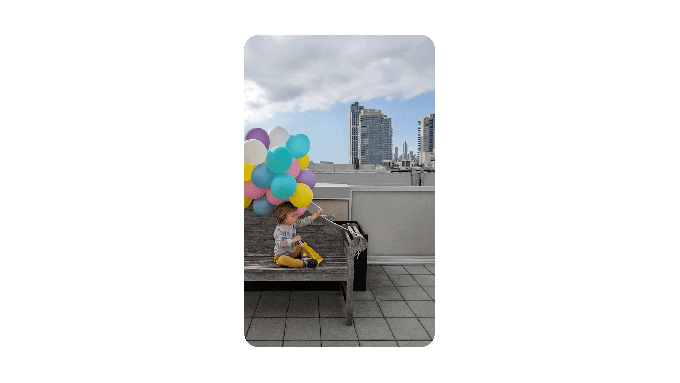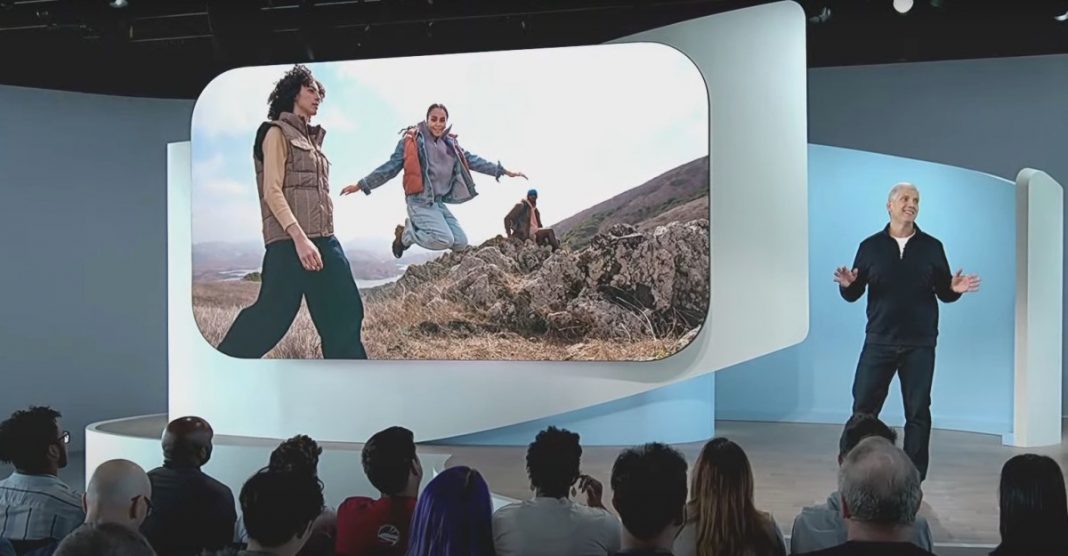Google is bringing generative AI to its popular Google Photos app with the arrival of the Pixel 8 and Pixel 8 Pro smartphones. The feature, first announced at the company’s I/O developer conference in May, allows for more complicated edits — like filling in gaps in a photo, repositioning the subject and other edits to the foreground or background of a photo.
At I/O, Google demonstrated how Magic Editor could easily combine various editing tasks. For example, it took an image of someone standing in front of a waterfall, removed the additional people from the photo’s background and removed a bag strap from the subject’s shoulder for a cleaner shot. It then leveraged AI to “cut out” the photo’s subject and better reposition them in the resulting image.

Image Credits: Google
Previously, Google Photos users would have to use other tools, like Google’s Magic Eraser or professional tools like Photoshop, to get the same effect. And the process would involve more manual edits.
In another demo, Google had shown off how you could reposition the photo’s subject and have AI “magically” fill in the rest of the photo as you shifted things that were more off-center in the original image. This time, Magic Eraser let you drag a boy sitting on a bench holding balloons closer to the photo’s center, and AI fills in the rest of the bench and the city scene behind him — even filling the sky with white fluffy clouds for a better photo.

Image Credits: Google
Under the hood, Google Photos is leveraging generative AI to make these more complex edits, like resizing or repositioning a subject. To work, users just tap the object to edit, then drag it to move it around or pinch to resize. Its contextual suggestions also let you change the photo’s lighting and background. Plus, Google says Magic Editor will offer multiple output options so you can choose the one you like best.
As demoed, the feature was fairly impressive, but it’s soon going to be put into consumers’ hands for real-world tests. And it may or may not end up producing the natural-looking polished images we’ve seen so far. Google admits this to some extent, by noting today that Magic Editor is an experience from its Labs program that’s in “early stages” and it knows “there are going to be times when the result isn’t exactly what you imagined.” But it hopes that over time, with technology improvements and user feedback, users will get better results.
The scale of its test could be sizable, however, given that Google Photos users edit 1.7 billion photos every month. Even if only a subset of those are on the newer Pixel devices, there will likely be a lot of data and edits to learn from.
Magic Editor was one of several new AI-powered photo-editing features for the Pixel 8 and 8 Pro. Others included Best Take, which takes a series of images and combines them into a blended image that produces the best shot; a generative AI feature Zoom Enhance feature that looked fairly sci-fi; and other improvements to its existing Magic Eraser feature that can now remove larger distractions from photos. Google said Best Take, Magic Editor and Audio Magic Eraser, which removes background noise, will be available on Pixel 8 devices starting October 12.
![]()
